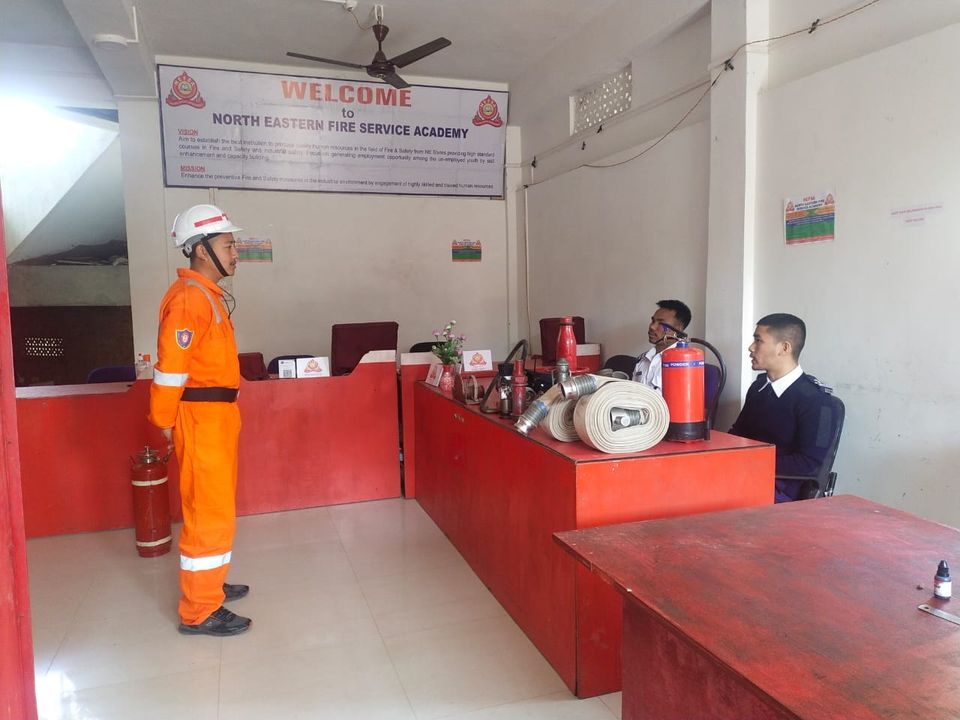Fire safety is not just the responsibility of teachers and administrators; students also play a vital role in creating a safe learning environment. Schools and colleges are high-traffic places where a small mistake can lead to serious accidents. By following basic fire safety rules, students can prevent risks, respond effectively during emergencies, and help protect lives and property.
At NEFSA (North East Fire & Safety Academy), we emphasize the importance of early awareness and practical training in fire prevention. Below are essential fire safety tips that every student should know and follow.
1. Understand the Importance of Fire Drills
Fire drills are not just routine exercises — they prepare students for real emergencies. Pay attention during drills, learn evacuation routes, and never treat them as casual events. Practicing regularly ensures you stay calm and act quickly if a real fire occurs.
2. Know the Evacuation Plan
Every school and college has a fire evacuation plan. Students should:
-
Familiarize themselves with exit doors and assembly points.
-
Avoid elevators during a fire.
-
Walk calmly and do not push others while exiting.
3. Avoid Overloading Electrical Outlets
Charging laptops, mobiles, and other devices is common, but plugging too many into one outlet can cause overheating and sparks. Always use outlets safely and report any damaged wires or plugs to school staff.
4. Handle Laboratory Equipment Safely
For students in science labs:
-
Keep flammable materials away from open flames.
-
Wear protective gear when required.
-
Never leave experiments unattended.
-
Know the location of fire extinguishers in labs.
5. Learn How to Use a Fire Extinguisher
While trained staff are usually responsible for firefighting, students should have basic knowledge of fire extinguisher use. Remember the PASS Technique:
-
Pull the pin
-
Aim at the base of fire
-
Squeeze the handle
-
Sweep side to side
6. Stay Alert in Dormitories and Hostels
For college students living in hostels:
-
Do not use open flames (candles, incense) inside rooms.
-
Switch off electrical appliances before leaving.
-
Avoid cooking in unauthorized areas.
7. Report Hazards Immediately
If you notice broken electrical wiring, blocked fire exits, or misuse of fire safety equipment, report it immediately. Timely reporting can prevent accidents.
8. Never Panic During an Emergency
Panic spreads confusion and slows down evacuation. Stay calm, follow instructions, and help classmates who may need assistance.
9. Respect Fire Safety Equipment
Fire alarms, extinguishers, and sprinklers are installed for safety — not for fun. Misusing or damaging them is dangerous and often punishable.
10. Be Part of Awareness Programs
Join fire safety awareness programs, seminars, and workshops conducted by organizations like NEFSA. Practical training gives students confidence to handle emergencies effectively.
Conclusion
Fire safety begins with awareness and responsible behavior. By following these simple yet essential tips, students can help create a safer environment for themselves and their peers. At NEFSA, we believe in empowering the youth with knowledge and skills that not only protect lives but also build a culture of safety in schools and colleges.
Contact us today to know more about admissions, batch schedules, and course details.
Visit: www.nefsaindia.com
Location: Dibrugarh, Assam
For More Blogs:- Click here







